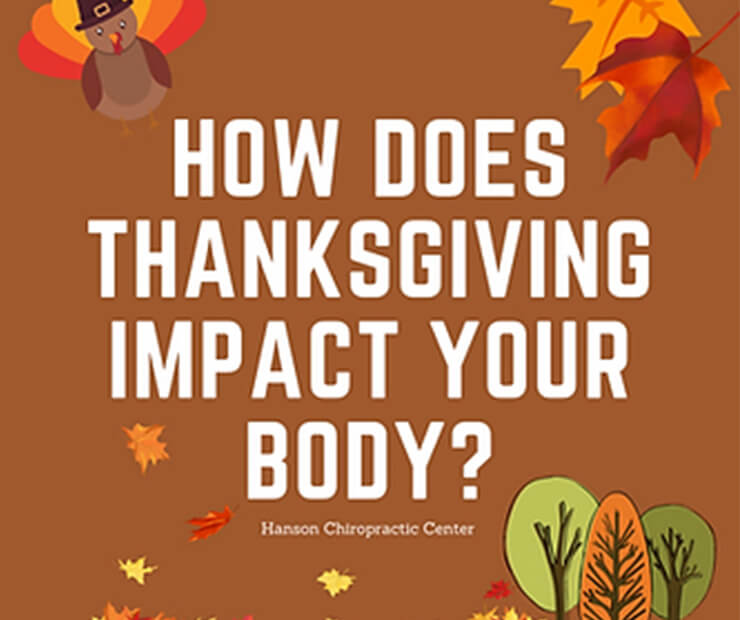It’s officially the time of year for Turkey, football, and family! Although Thanksgiving is only one day out of the year, your environment has a large impact on your body, and Thanksgiving is no exception. If you could have an inside look at your body on Thanksgiving Day, this is what you might see.
Almost Turkey Time!
Can you imagine the smell of turkey cooking or your favorite pie baking in the oven? Just one whiff of those delicious scents, and your body begins to change. The gastric fluids and enzymes in your digestive system begin to secrete in your stomach in preparation for the meal you smell cooking. Just as your mind is anticipating those first bites, so is your stomach!
Dinner Is Served
From the moment you take that long anticipated first bite of Thanksgiving dinner, your stomach gets to work. To prepare for the big meal ahead, your stomach expands to accommodate the food that will soon be broken down and digested.
Your gastrointestinal tract also prepares as it senses food is on the way. It releases more digestive enzymes from your stomach and pancreas into your intestines. Insulin is also released, so your body can turn the sugars you are eating into glucose that will feed your cells. That release then triggers the release of leptin, which is a hormone in your brain that allows your body to continue to release insulin as needed.
Carbing Out!
Just five minutes into your meal, and the sugars and carbs you’ve consumed cause your body to release serotonin. Serotonin is a hormone that makes you feel good and rewards your brain. That’s the moment you feel those good feelings from eating.
Ever wonder why it’s so hard to say to no seconds on Thanksgiving? A few minutes after serotonin is released, the reward system in your brain is further activated, spurring you to eat more.
Feeling Full?
The moment has finally come, and you are stuffed (and wishing you wore larger pants). The nerves in your stomach stimulate the satiety centers in your brain to let you know you’ve had your fill. The problem with these signals is that they are easy to ignore, and oftentimes we continue to keep eating. If you are a fast eater, then your brain has a hard time keeping up, and you will probably be past the point of full when you finally start to feel it.
Nap Time!
Don’t just blame the tryptophan for making you feel sleepy. Your stuffed stomach is more likely the culprit behind your urge to take a nap. A lot of blood and energy is being directed to your digestive system to break down the big meal you just ate, which makes you feel sleepy. So remember to give yourself a break this Thanksgiving and have enough to get your Thanksgiving fix, but not enough to put you over the edge!
In order to ensure your body (including your digestive system!) is functioning optimally this Thanksgiving, contact us for a chiropractic adjustment!



